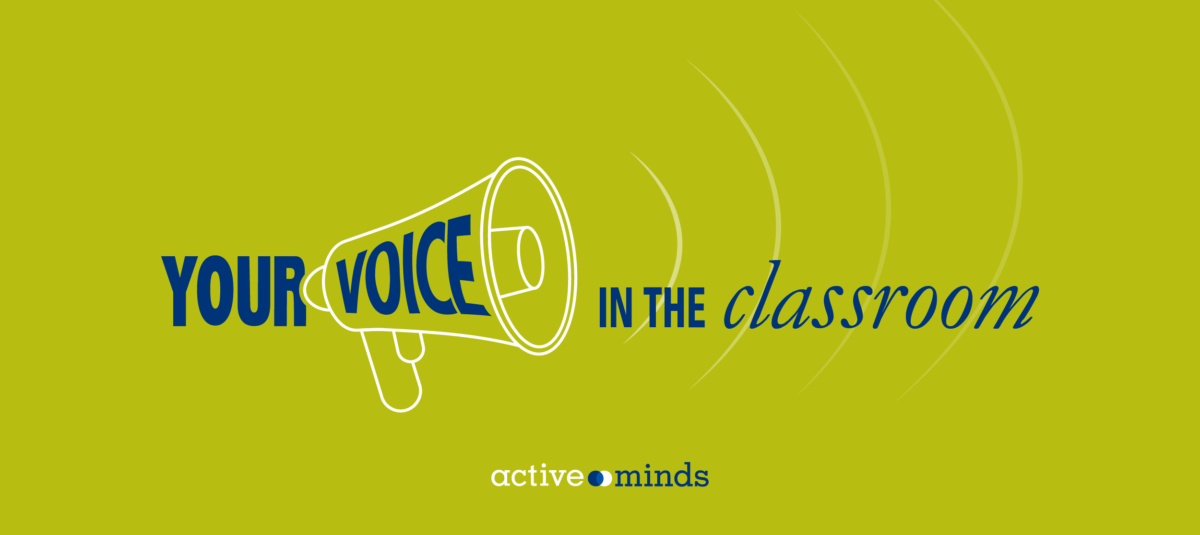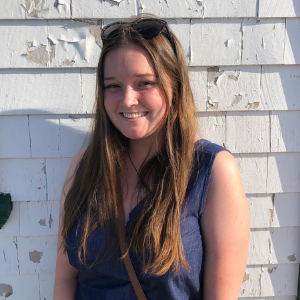At the beginning of this semester, Active Minds launched the Your Voice Is Your Power campaign that calls on students and advocates to partner with their campus multicultural affairs offices and student organizations to rally around BIPOC students’ mental health and well-being.
In order to make these impactful changes on your campus you must work closely with your campus leadership. I have learned through working with campus administration, faculty, and staff that connections are everything. Professors are often the first or only point of contact for a student looking to access mental health resources. Particularly within hybrid or full remote learning models, students are dependent on faculty members as key facilitators of their sense of belonging and connection to the university.
I am extremely fortunate to have attended a school with faculty and staff who are dedicated to the issue of mental illness and its associated stigma. As a freshman, I had no clue what Active Minds was. I learned about it when my psychology professor advertised on the whiteboard the idea of students coming together and establishing our school’s first-ever Active Minds chapter during my first semester at college.
I immediately jumped at this opportunity and visited my professor during her office hours that same week. I also started staying a few minutes after class each day to figure out the best approach to establishing our chapter.
Between myself, my professor, and one other student, we knew that if we wanted our chapter to be sustainable, we would need to form greater connections on campus. We partnered with another professor, who was the head advisor of our school’s Honors Scholar Program. The honors program is dedicated to serving our campus and community, so it was a perfect connection when we first started!
Our work with the honors program and the administration at our school made our connection with the Counseling Department that much stronger. We began working with the case management and Dean of Students Office through their first-ever faculty and staff-led Mental Health Matters Committee.
The Mental Health Matters Committee helped tear down the barriers that exist between faculty, staff, and students. All of us were seen as equal, as humans, and all with valuable input and ideas. Through our biweekly meetings, our Active Minds chapter was able to hear directly from influential faculty and staff on what their needs were, as well as to speak on behalf of the student’s needs on campus. This committee was the connecting bridge between the common gap students, faculty, and staff face.
I know that sometimes it can feel overwhelming to ask your professors or faculty members for help in making changes on campus, especially for access to mental health resources. Don’t be afraid to put yourself out there and talk to your campus leadership. There is likely someone on campus within a department whose mission or job function that can be enhanced by your work — or maybe they genuinely admire what you’re doing.
If you are struggling to find out how ways to talk to someone about implementing Your Voice Is Your Power initiatives on your campus, here are a few things you can try:
- Consider approaching faculty or staff at their office hours to get their input.
- If you are hesitant to talk to your professor in person, send them an email with more information on Your Voice Is Your Power.
- Set up a Zoom or Google Hangouts meeting with your favorite professor to discuss an actionable step you could take.
- Ask another member of your chapter or friend to stay with you after class to talk to your professor.
- Schedule office hours with Active Minds national staff members for tips and more advice.
Your Voice is Your Power is an opportunity to make the student voice heard and advocate for change across your campus and community. While it’s understandable to feel nervous about bridging this student-faculty gap, remember that faculty and administrators want to hear student perspectives. They are there to help you succeed.




